Raspberry Pi Zero 2 W
by Raspberry Pi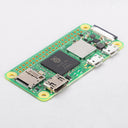



A much beloved, uber hackable single board computer with wireless and Bluetooth - now with a quad-core, 64 bit CPU upgrade!
Raspberry Pi Zero 2 W is a tiny low-cost computer with a massive user base that is perfect for embedded projects. It has the same footprint and 40 pin GPIO arrangement as the Zero and Zero W, so it should be compatible with most existing add-ons.
What's new though, is the very shiny quad-core, 64-bit ARM Cortex CPU - which gives the Zero 2 W (almost) comparable processing power to a Pi 3 (it runs at 1GHz, rather than 1.2GHz). The power of a full size Pi crammed into the Zero footprint - great for tiny retro consoles and any small projects that require more processing oomph than the Zero W can traditionally provide!
The standard Zero 2 W comes without a pin header - but you can find solder and solderless header options under the Extras tab, as well as suitable mini HDMI cables, micro USB power supplies, SD cards and cases. Alternately, you could pick up a Pi Zero 2 WH, which comes with headers pre-attached!
Key features
Building on the success of the current Zero family, Raspberry Pi Zero 2 W is built around a Raspberry Pi-designed System-in-Package, which integrates the BCM2710A1 die used in Raspberry Pi 3 with 512MB of RAM.
- 1GHz quad-core, 64-bit ARM Cortex-A53 CPU
- VideoCore IV GPU
- 512MB LPDDR2 DRAM
- 802.11b/g/n wireless LAN
- Bluetooth 4.2 / Bluetooth Low Energy (BLE)
- MicroSD card slot
- Mini HDMI and USB 2.0 OTG ports
- Micro USB power
- HAT-compatible 40-pin header
- Composite video and reset pins via solder test points
- CSI camera connector *
Raspberry Pi Zero 2 W is footprint-compatible with earlier members of the Zero family.
Notes
- Please be aware that the LED on your Zero 2 won't light up if there's no SD card or if there's a problem with the image. SD cards that work in other models of Pi are not guaranteed to work in your Zero 2, so try flashing a fresh image if you're having problems! These instructions from Raspberry Pi will guide you on how to flash Raspberry Pi OS to your SD card.
-
Pi Zero 2 W Only
SC1176£12.00 -
+ Installed headers
SC0721Out of stock£14.15
Pi Zero 2 W Essentials
Useful items for connecting to your Pi
-
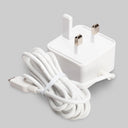 Raspberry Pi 12.5W Micro USB Power Supply (for Pi Zero 2 W, 3 B+ and earlier)+ £7.50
Raspberry Pi 12.5W Micro USB Power Supply (for Pi Zero 2 W, 3 B+ and earlier)+ £7.50 -
Raspberry Pi Zero Adaptor Kit+ £4.75
-
GPIO Hammer Header (Solderless)+ £6.00
-
Three Port USB Hub with Ethernet (micro B)+ £8.25
-
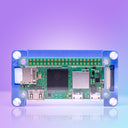 Pibow Zero 2 W+ £5.00
Pibow Zero 2 W+ £5.00 -
Male 40-pin 2x20 HAT Header+ £0.83
Mini HATs
Add more functions to your Pi with a fancy add-on board
-
 Display HAT Mini+ £15.75
Display HAT Mini+ £15.75 -
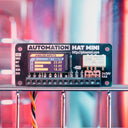 Automation HAT Mini+ £18.75
Automation HAT Mini+ £18.75 -
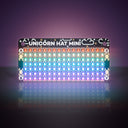 Unicorn HAT Mini+ £18.25
Unicorn HAT Mini+ £18.25 -
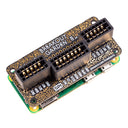 Breakout Garden Mini (I2C + SPI)+ £9.00
Breakout Garden Mini (I2C + SPI)+ £9.00
Need larger quantities? Bulk orders can be placed via our wholesale store! ❤️
Shop with confidence – we've been serving the hobbyist electronics, Maker, and retro gaming communities since 2012.
- Satisfaction or refund guarantee
- Worldwide shipping via mail or courier
- 57,000+ customer reviews
- Approved Raspberry Pi Reseller
- Secure website and payments






